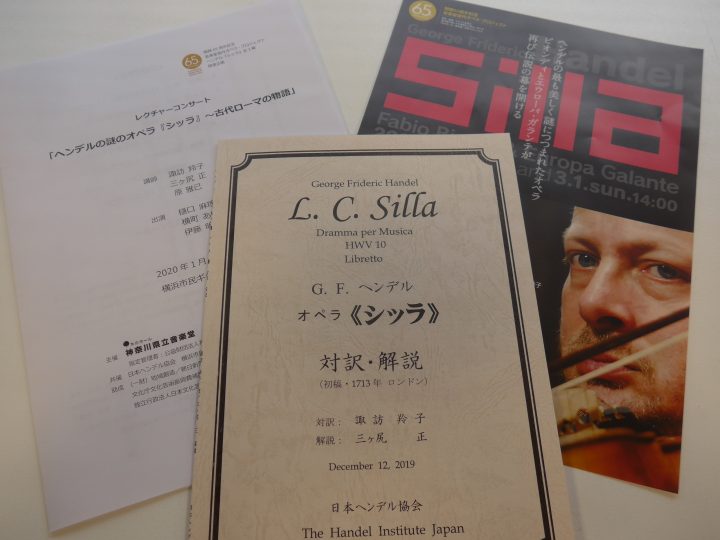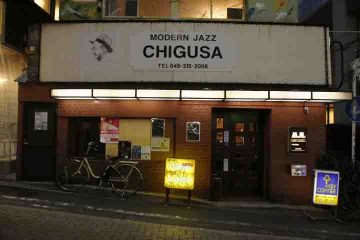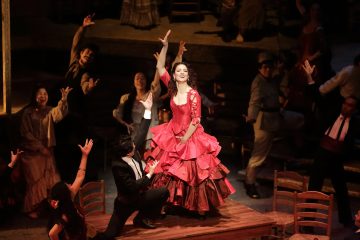An interview with Makoto Ozone, a musician who travels between the worlds of classical and jazz: "Music is like language"
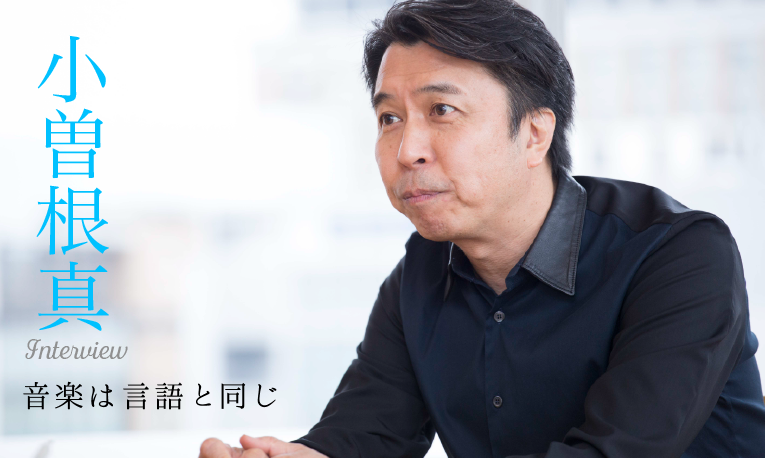
Interview & Text: Shoko Hamayasu Photo: Masamasa Nishino Released 201.3.8
"Music is like language. Even if the rhythm and sounds are different, the underlying principle is the same."
These are words that Japan's world-renowned pianist and composer, Makoto Ozone, has often spoken about in interviews. While performing in a variety of formats, including solo, duo, trio, band, and orchestra, Ozone has also demonstrated his talents as a composer in many fields, including the world of stage and film. He can be called a specialist who can grasp and express the essence hidden deep within the heart, using a variety of languages.
In recent years, he has left the world of jazz and tackled the works of classical greats Chopin and Mozart in "Road to Chopin" released in 2010, and "Jeunehomme" released in 2015, and as can be seen, he continues to fascinate fans by going back and forth between the worlds of jazz and classical music. This interview was conducted on his way to the award ceremony of the "JAZZ JAPAN AWARD" sponsored by JAZZ JAPAN magazine . He was a member of the executive committee together with Masayasu Tsuboguchi and others, and his activities in the "Jazzfestival at Conservatory", which he set up for music college students, were recognized and led to him receiving a special award. There are too many achievements to list, so for details, please refer to the biography on his official website. In this article, we will trace his roots and transitions, ask him about classical music and jazz, and his approach to music and his way of being an artist, and unravel the character of the musician Makoto Ozone and his interesting music theory.
I hated classical music and the piano in my childhood
--Mr. Ozone, you have been involved in classical works and performances in recent years, but you actually started learning classical piano at the age of five, but soon quit because you didn't like Beyer.
I hated the piano after the first 30-minute lesson. The Beyer staff and tadpoles (musical notes) are big. If my father (Minoru Ozone, jazz pianist/Hammond organist) hadn't been a musician, I probably wouldn't have noticed. I'd always seen my father's scores at home, which were like detailed, beautiful, artistic graphics, so the moment I saw Beyer, even as a child, I realized that it was "childish stuff written for children" and I felt like I was being made fun of (laughs). Moreover, I was already playing songs with one finger back then, so even if I were to slowly press the keys like "Do-Re-Do-Re" and be praised for "Good job!", I just started to get more and more angry (laughs). So I thought, "Is this really music? How lame!" And so I came to hate the piano, music scores, and classical music.
Perhaps because of this experience, I have always wondered, "What is education?" I am currently playing in a big band with university students, and I will be performing with them at the award ceremony I am attending today. I have many opportunities to interact with students on a daily basis, which makes me think a lot about education.
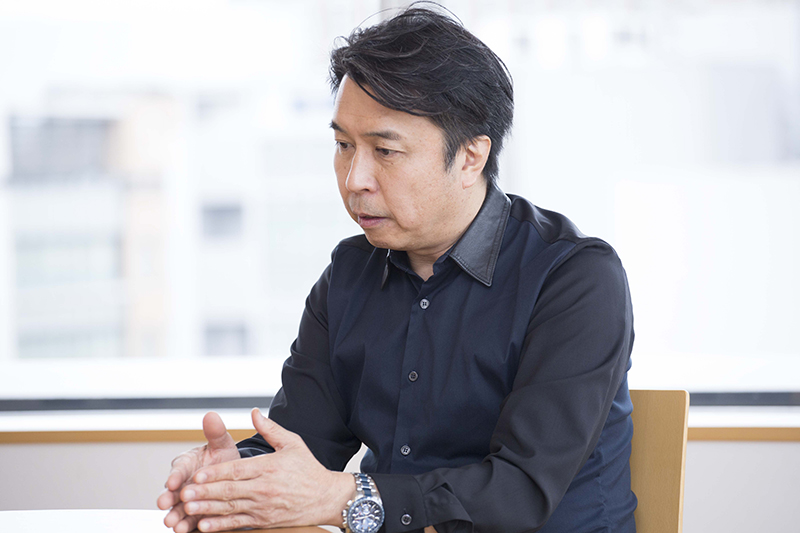
The goal is to become a teacher who doesn't become a teacher!
- This time, your achievements at the "Jazz Festival at Conservatory" were recognized, and you received a special award from the JAZZ JAPAN AWARD. You are also involved here as an educator, so what are your thoughts on education?
What I'm talking about here is just my way of thinking, and I think there are various educational theories, but I think the ideal education is for students to come and take what the teacher has. It's not a one-sided teaching. In that case, the role of the teacher is to get children interested. It's easy to say "do this. Do that," but that alone doesn't allow for practical application. Teaching music is the same as teaching words.
- What do you mean?
For example, if a student wants to use the word "but," but the teacher says, "Say 'however,'" then the question "why?" arises. Unless that question is properly answered, "however" will always be a borrowed word. I feel like there are a lot of people who teach music like that. There are quite a lot of people who listen to my performances and say, "I used to play classical piano. When I heard Ozone's performance, I thought I should have continued playing piano." Then, when I looked into the reason why that person quit piano, I thought that there was a problem with the way the teacher taught them.
—Actually, I was the one who quit playing the piano when I was young (laughs).
Yes, there are many. And I think many people teach to prove that they are right. When I became a teacher, I started to feel a fear of the job. It's a big responsibility. Even now, I try not to become a teacher. It's difficult to teach students if you are not constantly growing as an active musician. If you become a university professor and go to school about three times a week, the reality is that you won't have time to study. This is difficult unless we restructure the school from the ground up. For example, it would be good if professors were required to travel for about one month a year or go on a concert tour. It seems difficult to realize in the current situation.
The long road to reconciliation with classical music
-Going back to the original topic, you had grown to dislike classical music and had left it. What was the trigger that led you to rediscover it and make amends?
The chance to get involved with classical music came in several stages. I first wanted to listen to classical music around the time of my debut. I hated the piano, so I played the Hammond organ all the time, but when I was 12 years old, I was moved by seeing Oscar Peterson 's performance, and then I started playing the piano. But for me at the time, who wanted to play jazz, classical music was just a practice material. It was just a method to improve my technique. I didn't get anything out of playing Mozart. I guess the bad impression I had from playing Beyer was still there (laughs).
—So at this stage you still weren’t interested in classical music.
My goal at the time was to play like Peterson. I had to create my own style quickly, and I thought that was the first condition. But now I think that it's impossible to create your own style at 20 years old or so. But at least in the jazz world, that's what was expected, and I needed to draw my own compositions.
As expected, at that time, whatever I played, it sounded like Peterson. I was worried that this was not good, so I started to get interested in the classical music world again. So I called a friend who is a pianist and played classical music and asked, "I want to listen to classical music, what do you think I should listen to?" He said, "You've always played jazz, so you might not get it if you listen to Beethoven or Bach. Why don't you try listening to Prokofiev for now?" I couldn't help but ask him, "What is Proko?" and he replied, "No, I mean a person, a composer." I thought "Proko" was probably a part of a genre or something. You know, something like progressive rock (laughs). That was the level of my knowledge at the time. So I listened to Prokofiev 's Piano Concerto No. 3, which she recommended to me, and I was completely knocked out by it, saying, "There's something like this in classical music too!" That was the trigger for me to start listening to classical music.
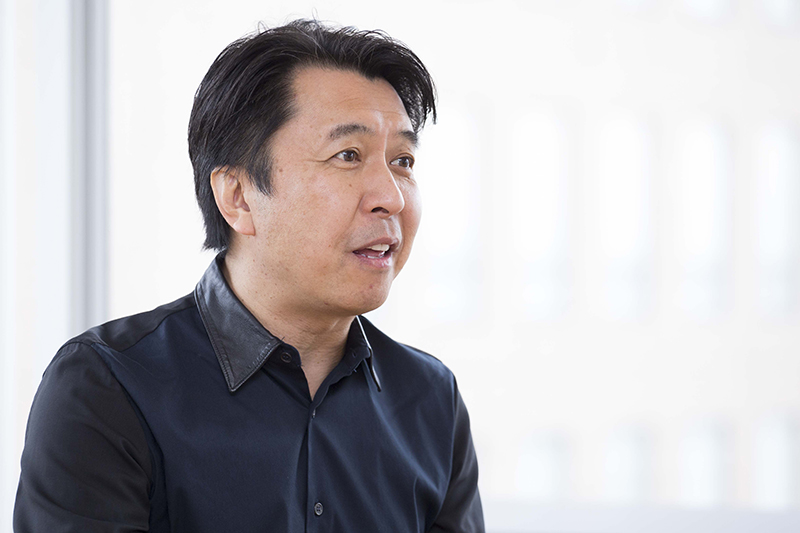
-So then you finally started to become interested in classical music. And it was after that that you actually started to play classical piano.
It was a long time after that. In 2003, Tadaaki Otaka (conductor and honorary music director of the Sapporo Symphony Orchestra) asked me to be a soloist at the Sapporo Symphony Orchestra's regular concert. ...But I had heard Otaka say on a radio program that he wanted to do "R'Absolution in Blue" with Ozone-kun someday, so when I got the offer, I assumed that I would be doing "R'Absolution in Blue." I accepted without checking the details. Then, two or three months later, I called my manager at the time and said, "Contact the other party and ask them what song they would like. I think it's probably "R'Absolution in Blue." Then, about two minutes later, he called me in a panic and said, "Um... he said something like Mozart." I never expected to get such an answer, so I was surprised and blurted out, "That can't be!" So I asked him, "At this point, you can't cancel now, right?" and he said, "Yes, you can't cancel now" (laughs). He also asked me to choose the songs. Since I hadn't even listened to them properly, I hurriedly went to a CD store and bought a complete collection of Mozart's concertos, about 7 discs. I think I still have that CD at home. So I listened to all the songs over the course of about 10 days, and chose No. 9, "Jeunehomme," to play.
-So you started classical piano under pretty desperate circumstances (laughs).
I was extremely nervous on the day I performed. I don't even remember how many pieces I played, and because my body was so stiff, I ended up hurting my back. I'm usually pretty relaxed when I play, but that time, all I remember is that I finished the performance and thought, "My back hurts!" (laughs). The performance itself ended safely without any accidents, but when I listened to the recording later, I was disappointed that I hadn't played the way I wanted to. Otaka-san said it was wonderful, and spread the word about my performance to many people. But that was the start of me receiving calls from various orchestras saying, "Do Mozart for us too." Also, through that connection, I was asked by my current agency to perform "Jeunehomme" at La Folle Journée, and the performance was realized in 2006.
Ozone Style: How to Deal with Classical Music
--That memorable song became the subject of the album of the same name, "Jeunehomme," released last year.
You have to know the song well to arrange it. I thought that if I were to do it first, it would be "Jeunehomme". But it took me three years to complete it. I spent two years and ten months planning it, and two months writing the song. At that time, I was always thinking about songs in the bath. I often think about songs while soaking in the bath. Like, "I'll do the intro like this, and then do that..."
—The songs were born in unexpected places. Were you self-taught when it came to classical music?
I decided to study classical music properly, so I went to a classical music school for one semester. I think it was in 2004. I had a friend who was a pianist at the Eastman School of Music, so I asked him to teach me a lot of things. I learned conducting, orchestration, and counterpoint (composition), which I had never done before. I decided that I would not play jazz for those four months. That's when I got really into classical music.
--Your two works, "Road to Chopin" and "Jeunehomme," feature bold arrangements, but I've heard that the "Etude" from "Road to Chopin" is the only piece you played exactly as written. Can you tell us why?
It's a sign of my respect for classical musicians. And it's like a business card for classical music fans. Since I'm using Chopin's name to create a piece, I'll at least try my best to play one piece exactly as written, even if it's terrible, and ask for your support. I thought it would be better than a jazz person using only classical themes and cooking everything in their own way. If I were to call it Japanese food, but just stir-fry all the ingredients in sesame oil and season it with Chinese flavors and say "Here you go," it would be rude to Japanese food lovers. So I played it with the feeling of "I'm not very good at it, but I tried my best to make a basic stew" (laughs).
—I see, it's easier to understand if you compare it to cooking (laughs).
The difference between classical and jazz music = types of freedom and conflict
-- Is there a difference between playing classical music and jazz? In an interview you previously gave to another magazine, you said that classical music, compared to jazz, "has infinite freedom at a very deep level." What does that mean?
Jazz is mainly improvisation, but I've noticed the limitations, or rather disadvantages, of improvised music. The words you can use only come from your own vocabulary. That means there's the conflict of having to keep creating your own vocabulary. On the other hand, with classical music, you're always confronting yourself, or rather, your own karma. Including how you feel and how you want to play. For example, jazz is like everyday conversation, while classical music is like a play with a script. It's interesting to see how you interpret it. The more you play, the more questions you have. Unlike jazz, classical music has a set sound to play, but I think the question of how faithful you can stay to the feelings that arise at that moment is the same as jazz, and I think that's how I approach classical music. Now when I play, I feel very free.
—So the approach to jazz and classical music is different.
When improvising jazz, you always have to go to a scary place. But when it comes to classical music, you have to approach it by digging into the subject matter. Well, if you think too much, it becomes heady music, so my goal is to play what I intend and have it resonate with my heart. If it doesn't resonate here (pointing to his chest), I can't convey it to the audience. So I think it would be rude to play while asking the audience, "What do you think of this?" After all, I have to play what I think is "this, this!"
—That's a very important mindset for a professional, and it applies to more than just music. I've learned a lot from that. That's why you can touch the hearts of your audience.
To make something resonate with people's hearts
I feel like there are a lot of people who play music, both jazz and classical, to prove that they can do something. I sometimes feel like "Ugh" when I see people like that. This is just my likes and dislikes, so I think it's fine for there to be people like that and customers who like that, but there are some music that makes you feel emotional the moment you hear it. For example, if someone says "I love you," there's one person who is staccato but somehow tries to convey their feelings, and another person who is very fluent but seems used to saying it. If the latter is like "I'm great! So you'll be happy if you're with me," I feel like throwing something that's around! (laughs). It's the same with music.
It doesn't matter how high-brow the music is, what matters is how the listener feels it. You can't lie about this. For example, it's fine if Argerich plays in a way that makes you feel like "this isn't Beethoven." She probably has her own version of Beethoven in her mind, and it doesn't matter to me how Beethoven plays. I'm taken to the world of that 30-minute concerto, and the moment it ends, I get such a sense of elation and happiness that I want to stand up and applaud... this is "This is Music." And when you think about it, jazz and classical music are all the same music.
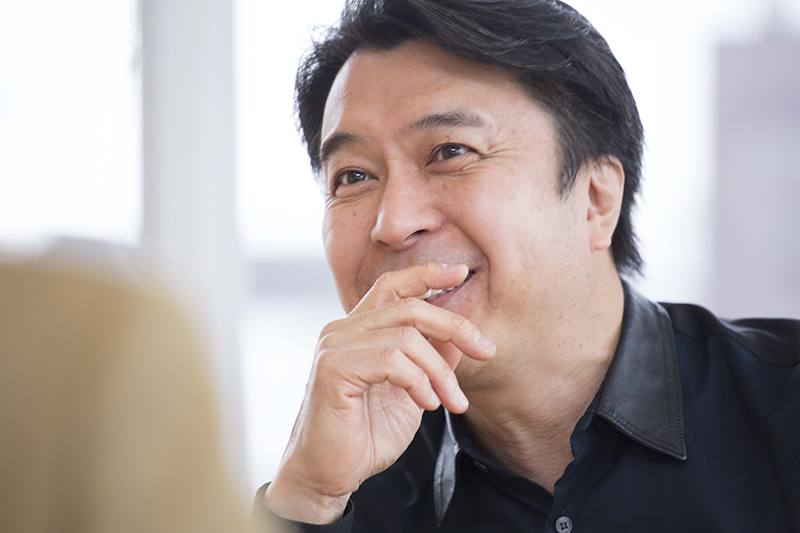
Music is a language. What's important is the universal nature of it.
There are people who are called classical police, and by the way, there are also jazz police. Some of them say, "That's not Mozart." But it's strange that no one complains much when it comes to Prokofiev. I want to say, "If that's the case, then there's no reason to complain about Mozart either (laughs). If you want to hear a performance that you know so well, you have no choice but to listen to the CD. The same goes for remakes of plays and movies, where people say, for example, "That's not Shakespeare." But if you can replace it with a modern version while understanding what Shakespeare really wanted to convey, then whatever form it takes, isn't that a wonderful thing?
In terms of music, it's fine if you make difficult and complex sounds, even if you make dissonant sounds, but if you don't physiologically understand what kind of chemical reaction the sound itself causes in you, I feel that there is not much point in playing music. And when you face music in that way, all genres, whether it's jazz, classical, rock, or pop, become irrelevant. Music is like a language. If jazz is English, classical is German; the only difference is the rhythm and sound, but in the end, the underlying message is the same. In other words, no matter what genre it is, the only difference is the language.
- As you can see from the names of the people you have collaborated with and the works you have released, you have worked on a variety of music across genres. Finally, please tell us about your future plans.
First, I will hold a concert (with saxophonist Kazuhiko Kondo) at Kanagawa Prefectural Music Hall on March 20th, and then in May I will start a duo tour with Chick Corea . As for classical music, I will also perform overseas, and from autumn onwards I will perform with the Vienna Tonkünstler Orchestra and the Bern Symphony Orchestra, and next year I will continue to perform with the New York Philharmonic. I also plan to continue performing solo concerts. Solo performances are the ones that expose you the most and force you to face yourself. I want to be able to show my growth every time, and I will continue to challenge myself seriously. I also want to revive my trio next year, and I have many different projects and things I want to do.
— We look forward to your continued success! Thank you very much for today.
Although it was a short time, it was a rich and exciting interview that felt like experiencing a live performance right in front of me. After that, I followed Mr. Ozone and left the venue to the JAZZ JAPAN AWARD venue, where I listened to the performance of the "Jazz festival at Conservatory" that he was conducting. At first, I was smiling as I watched the innocent faces of the music college students as they came on stage, but once the performance began, I was blown away by the extraordinary performance, which felt completely different from the big band I had imagined. ...It would take too long to give a live report here, so I will stop here, but it is best to experience it live. If you enjoy the music and the space, you will surely be able to feel the meaning of what he said. It's okay if you don't know much about classical music or jazz. Just as anyone who has had experience interacting with foreigners who don't speak the same language will feel that "even if you don't understand the language, you can still somehow communicate," you will be impressed once again that music can be fully enjoyed even if you don't understand the genre. --There are certainly many similarities between music and language. After finishing my interview, I suddenly thought to myself that perhaps the reason there are so many different types of music today is because the Tower of Babel collapsed a long time ago, causing all the languages of the world to become scattered.
▽For more information on Makoto Ozone's future activities, please click here
▽For information about the piano concert at Kanagawa Prefectural Music Hall featuring Ozone Makoto, please see the related events below.

